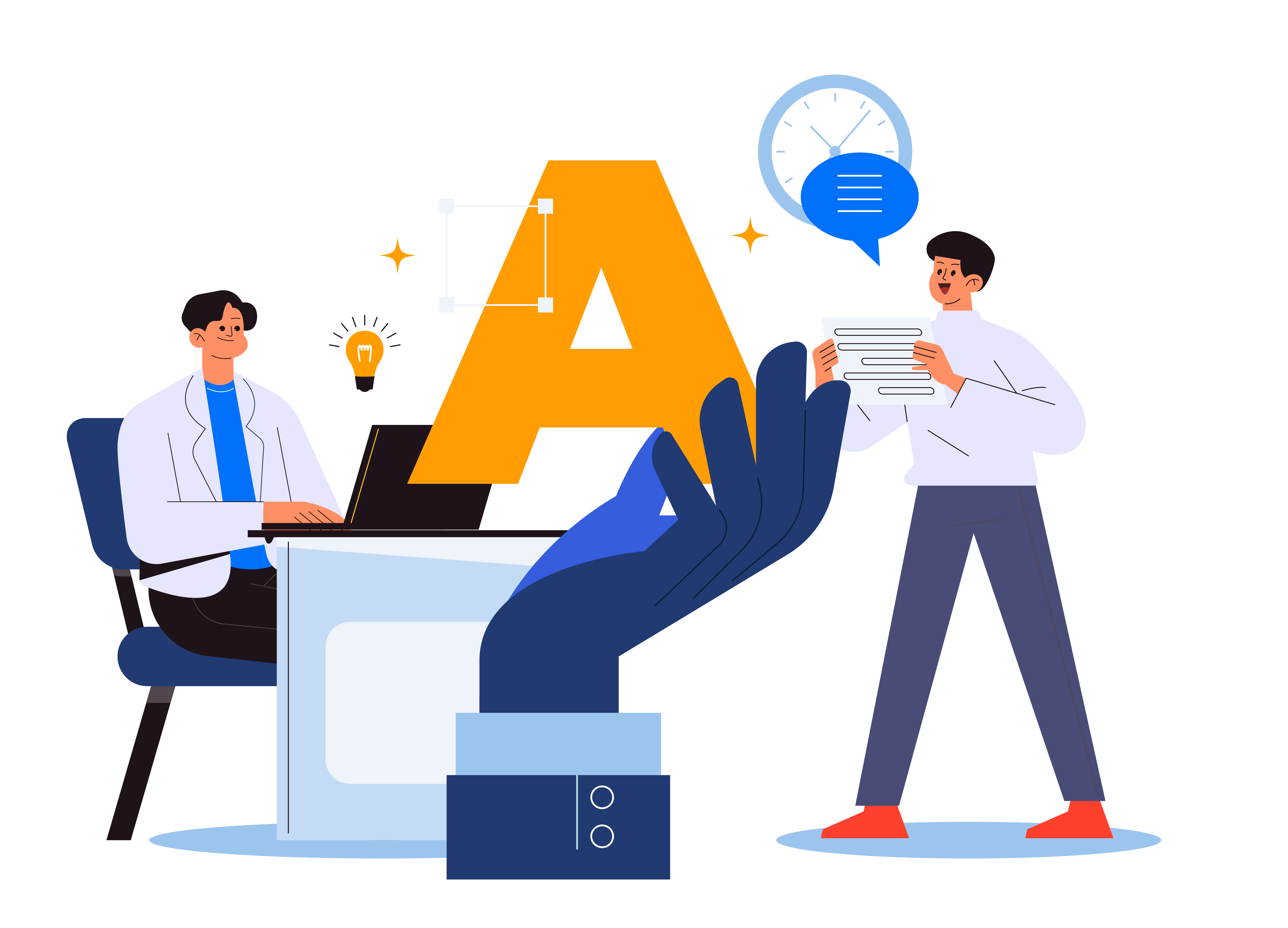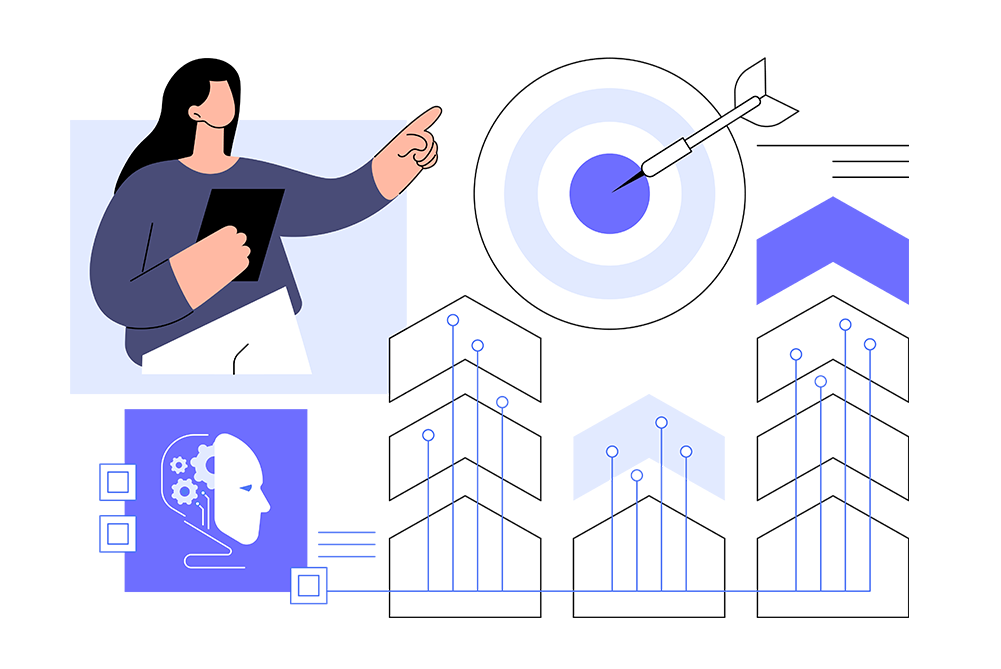In an era where technology drives progress, Artificial Intelligence (AI) emerges as a pivotal force in reshaping the business landscape. The integration of AI into various business processes is not just a trend but a substantial shift towards smarter, more efficient operational models. Worldwide, spending by governments and business on AI technology will top $500 billion in 2023, according to IDC research. But how will it be used, and what impact will it have? This guide delves into ten advanced AI solutions that are revolutionizing the way businesses operate, providing them with a competitive edge in today’s fast-paced market.
Predictive analytics stands at the forefront of AI applications in business. By harnessing vast amounts of data, AI algorithms predict future trends and behaviors, enabling companies to make proactive, knowledge-driven decisions. From forecasting market demands to identifying potential risks, predictive analytics is transforming the decision-making process in businesses across industries. In fact, nearly half of supply chain leaders increased spending on innovative technologies and systems during the pandemic — including predictive analytics.
AI has redefined CRM systems, making them more intelligent and responsive. Integrating AI into CRM tools enhances customer interactions, automates tasks, and provides insightful data analytics, leading to more effective sales strategies and improved customer service.
A new survey of business leaders by PWC in the US shows that 88% struggle to capture the value from their technology investments. AI-driven CRM systems offer substantial advantages in personalizing customer experiences, streamlining marketing campaigns, and providing efficient customer service. These benefits translate into higher customer satisfaction and loyalty, which are crucial in today’s competitive business environment.
AI technologies are playing a crucial role in automating content creation, enhancing content management, and streamlining the editorial process. By leveraging natural language processing and machine learning algorithms, AI tools are capable of generating initial drafts, suggesting content improvements, and even curating personalized content for specific audiences. The integration of AI into publishing workflows leads to increased efficiency and accuracy.
In the realm of education and corporate training, AI-powered LMS are proving to be game-changers. These systems offer personalized learning experiences and efficient management of educational content, benefiting both learners and educators.
AI-powered LMS transforms corporate training by providing customized learning paths, predictive analytics on employee performance, and efficient content management. This leads to more effective training programs and a better-skilled workforce.
As cyber threats become more sophisticated, AI-powered cybersecurity solutions are essential for protecting business data and systems. AI algorithms can detect and respond to security threats in real-time, significantly enhancing an organization’s defense mechanisms.
AI’s role in cybersecurity is pivotal, as demonstrated by Darktrace during the Tokyo Olympics. They used AI to detect and thwart an attempted cyberattack a week before the event. This incident showcases AI’s capability in early threat detection and rapid response, enhancing digital security. Such AI tools are crucial in modern cybersecurity strategies, offering advanced solutions against sophisticated cyber threats.
IPA represents the next level of automation, combining traditional automation with AI capabilities. This integration results in systems that can learn, adapt, and make decisions, significantly improving business processes.
By implementing IPA, businesses achieve greater operational efficiency, reduced costs, and enhanced productivity. IPA systems automate complex tasks, streamline workflows, and provide insights for continuous process improvement.
AI is revolutionizing the field of human resources, particularly in talent acquisition and management. AI tools help in screening candidates, predicting employee success, and enhancing employee engagement strategies.
Advanced AI-driven business intelligence (BI) tools offer deeper insights into business data compared to traditional BI tools. These AI tools analyze complex datasets to uncover patterns and insights that drive strategic decision-making.
The comparison between AI-powered BI tools and traditional ones highlights the enhanced capabilities of AI in processing and interpreting large volumes of data, providing businesses with actionable insights for growth and innovation.
In the financial sector, AI plays a critical role in analysis and forecasting. AI algorithms can process vast amounts of financial data, predict market trends, and assess risks, aiding in better financial decision-making.
Banks and financial institutions are increasingly adopting AI for credit scoring, fraud detection, and investment analysis. These applications demonstrate AI’s potential in enhancing accuracy and efficiency in financial services.
AI contributes significantly to sustainable business practices. By optimizing resource use and improving operational efficiency, AI helps businesses reduce their environmental footprint.
AI applications in energy management and waste reduction are prime examples of how technology can aid in achieving sustainability goals. Companies are using AI to optimize energy consumption and minimize waste, contributing to a more sustainable future. For example, computer vision is used in conjunction with satellite imagery to identify deforestation and illegal logging activity in the rainforests, as well as illegal fishing activity, which impacts biodiversity in the oceans.
The transformative power of AI in business is undeniable. These ten advanced AI solutions offer a glimpse into a future where technology and innovation drive business success. As businesses continue to evolve, the adoption and integration of AI will be key to staying competitive and achieving sustainable growth.

In the rapidly advancing field of artificial intelligence (AI), efficiency often rivals effectiveness in importance. Large language models (LLMs) like…

Conversational AI is rapidly transforming how businesses interact with customers and streamline internal operations. From intelligent chatbots to virtual assistants,…

The Imperative for Accessible Educational Content In the wake of global educational shifts, the imperative for accessible educational content has…